Death To The Inverted V
8/27/2008
Updated 8/31/2010
Lately, I've been growing increasingly uncomfortable with my
existing method of classifying arm action flaws. I have been
feeling that the terms
Inverted W, Inverted L,
and Hyperabduction don't
accurately characterize all of the types of flaws that I see.
As a result, I have decided to start using a fourth
term called the Inverted V.
An Inverted V is basically half of an Inverted W. In
other words, the Pitching Arm Side (PAS) action of an Inverted V
is the same as with an Inverted W, but the Glove Side (GS)
action of an Inverted V is different (and usually more traditional) than
an Inverted W.
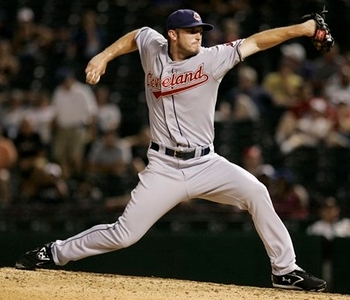
Jensen Lewis' Inverted V
The photo above of Jensen Lewis is a perfect example of an
Inverted V. Notice the fairly conventional GS arm orientation,
but the PAS elbow well above and behind the level of the
shoulders in a position of Hyperabduction and the PAS hand at the level of the shoulders.
The Inverted V isn't (that) bad on its own. Rather, the Inverted V is bad because it can create a
timing problem that can increase the load on the PAS elbow and
shoulder.
I don't know anything about his health history, but if
you look at the photo above of Jensen Lewis you can see a strong
hint of a possible timing problem. Notice how his PAS forearm is
not yet even horizontal but his GS foot is just about to plant
(and his shoulders are probably just about to rotate).
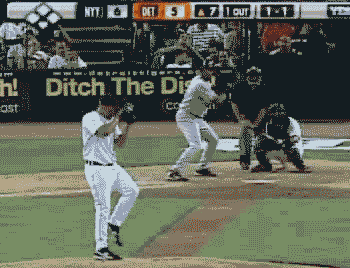
Joel Zumaya
A significant Inverted V, and a resulting timing problem, is what you
see in the clip above, and photo below, of
Joel Zumaya.
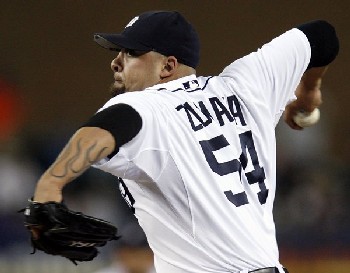
Joel Zumaya's Inverted V
You can also see an Inverted V in the arm action of a number
of other pitchers.
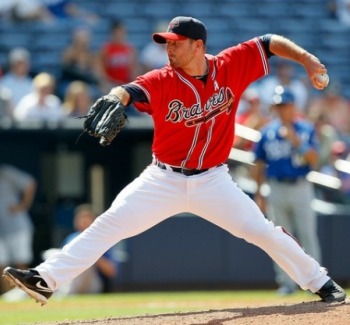
Billy Wagner's Inverted V
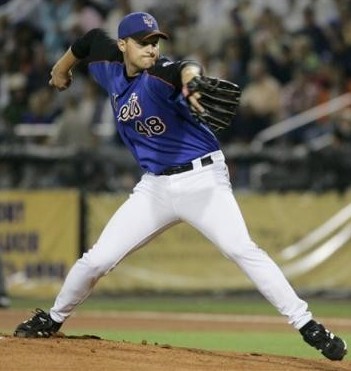
Aaron Heilman's Inverted V
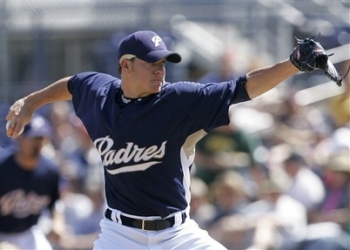
Jake Peavy's Inverted V
This generally puts their elbows and shoulders at greater
risk, although some of this risk can be mitigated by pitching
out of the bullpen.
|